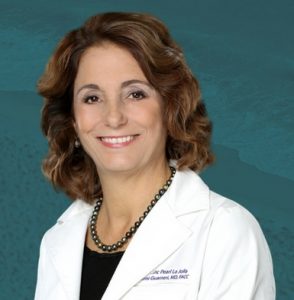Integrative Health and Medicine
 In medical school, we are trained to practice the “pill for every ill” approach, and that’s how I was trained as a cardiologist—to make a diagnosis and then prescribe an appropriate pharmaceutical therapy or surgery. This approach makes perfect sense in acute care, such as when a patient is having a heart attack or stroke and you need to act quickly. But with any chronic disease or the types of issues I see every day, whether it’s diabetes, hypertension, psoriasis, eczema, or depression, Western medicine seeks to name it, blame, tame it—without getting to the underlying cause.
In medical school, we are trained to practice the “pill for every ill” approach, and that’s how I was trained as a cardiologist—to make a diagnosis and then prescribe an appropriate pharmaceutical therapy or surgery. This approach makes perfect sense in acute care, such as when a patient is having a heart attack or stroke and you need to act quickly. But with any chronic disease or the types of issues I see every day, whether it’s diabetes, hypertension, psoriasis, eczema, or depression, Western medicine seeks to name it, blame, tame it—without getting to the underlying cause.
My whole journey as an integrative medicine practitioner has been focused on health creation, to answer the question: How do we create health? One of the key steps, which is not really taught in medical school, is to understand the root cause of disease so that we can put in place a program that goes beyond pharmaceuticals to slow down or even reverse the disease process.
An Integrative Approach to Disease Prevention
In the early part of my medical career, treatment largely consisted of pharmaceuticals, surgery, and maybe some physical therapy. Patients would complain about stressful life events, financial stress, depression, or bodyweight issues, and all we had to dispense was medications. So, I began to look for other options for my patients. In the 1990s, I conducted research with Dr. Dean Ornish in which we asked a fundamental question: Can we reverse coronary disease through lifestyle changes? Study participants practiced yoga and meditation or maintained vegetarian diets or an exercise regimen, and the results were eye-opening. We realized that not only is disease preventable, but it’s reversible. This set me on the journey of seeking to understand the root cause of illnesses—to treat the whole person and empower people to take charge of their health.
In health care today, we dispense pharmaceuticals too liberally. For example, in treating depressed patients, instead of trying to figure out why the person is depressed—did the patient’s dog die? is the patient not getting enough sun? is the patient isolated?—we give different depressed patients the same therapy—an antidepressant. Nine out of 10 times, we as doctors are just not looking deeply enough.
Integrative medicine emphasizes root causes. Here’s an easy way for my patients to understand an integrative approach to health: I ask, “If you have a tree, and it’s not doing well, what do you do?” Naturally, answers involve fixing the soil, fertilizing the tree, or increasing watering and sun exposure. I have my patients label the branches of the tree—high blood pressure, diabetes, whatever health condition they’re dealing with. Western medicine would be inclined to dispense a drug for every disease or branch of this tree, but integrative medicine looks at the soil, at the roots. So, an integrative approach to treatment focuses on micro- and macro-nutrition, sleep, stress, exercise, community, and lifestyle.
Whereas conventional medicine prescribes medicines for chronic conditions, integrative medicine focuses on disease prevention. I believe what’s good for the heart is good for the brain. On a philosophical level, love is the greatest healer. How you connect with others makes a difference to your health. I believe that when people are lonely, depressed, angry, or stressed, they don’t always make the best health choices, but if they are happy, joyful, and have a purpose in life—things that we don’t talk about in medical school—making healthy decisions will come naturally.
Mimi Guarneri, MD, is a board-certified physician in cardiovascular disease, internal medicine, and integrative holistic medicine, and a founding board member of the American Board of Integrative Medicine® (ABOIM®), which is governed by the American Board of Physician Specialties® (ABPS).






